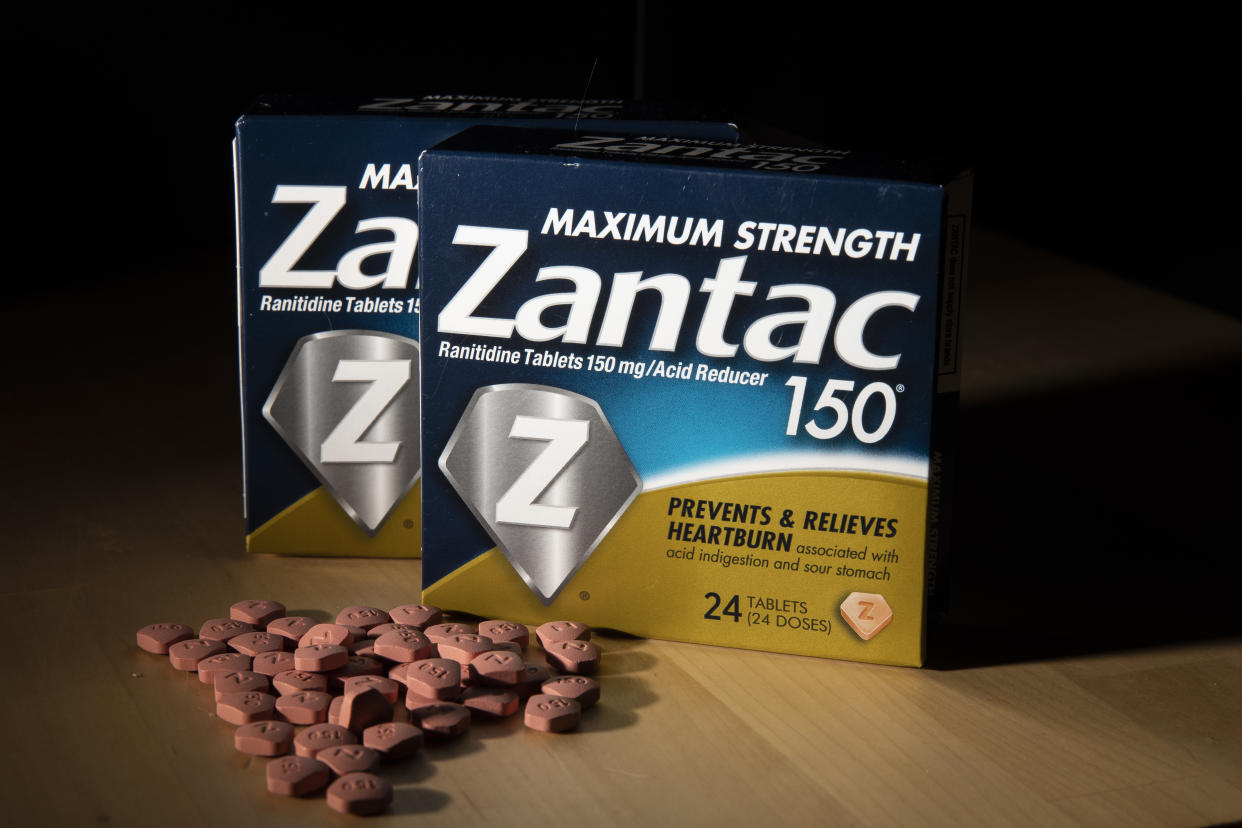Zantac is being recalled in the U.S. and Canada 'due to possible contamination'

The popular heartburn medication Zantac is being recalled in the U.S. and Canada after an investigation revealed that the drug may be contaminated with a cancer-causing chemical.
The recall, which drugmaker Sanofi called “precautionary” and “voluntary” in a statement on Friday, follows a Sept. 13 announcement by the Food and Drug Administration that low levels of NDMA (N-Nitrosodimethylamine) had been found in ranitidine — a stomach acid-blocking medication sold under the name Zantac. “NDMA is classified as a probable human carcinogen (a substance that could cause cancer) based on results from laboratory tests,” noted the agency.
In the statement, Sanofi said the Zantac recall stems from “possible contamination.” “Due to inconsistencies in preliminary test results of the active ingredient used in the U.S. and Canadian products, Sanofi has made the decision to conduct the voluntary recall in the U.S. and Canada as the investigation continues,” the statement read, adding, “The company is working with health authorities to determine the level and extent of the recall.”
While Sanofi makes Zantac, several different companies distribute its generic version. One of them, Sandoz (the generic drug arm of Novartis), had already halted its worldwide distribution of ranitidine after the initial investigation came out last month.
The recall comes in the wake of CVS, Walmart, Walgreens, and Rite Aide halting sales of Zantac “out of an abundance of caution.”
However, in last month’s statement, the FDA didn’t appear concerned by the amounts of NDMA found in the heartburn medications. Janet Woodcock, MD, director of the FDA's Center for Drug Evaluation and Research, said: "Although NDMA may cause harm in large amounts, the levels the FDA is finding in ranitidine from preliminary tests barely exceed amounts you might expect to find in common foods."
In a post for Harvard Medical School, pharmacist and associate professor of medicine at Brigham and Women’s Hospital and Harvard Medical School, Joshua Gagne, seemed to echo the FDA’s statement, writing: “It is important to know that the NDMA in ranitidine products does not pose any immediate health risks,” adding that the FDA and ranitidine drug manufacturers have not received “any reports of adverse events related to NDMA found in ranitidine.” Gagne also noted that, although NDMA is classified as a probable carcinogen, it “may cause cancer only after exposure to high doses over a long period of time.”
That may explain why the FDA hasn’t called for patients to stop taking drugs with ranitidine. That said, the government agency does suggest that people taking over-the-counter ranitidine medications “could consider using other OTC medicines approved for their condition,” adding, “There are multiple drugs on the market that are approved for the same or similar uses as ranitidine.”
For those who are concerned about taking their heartburn medications, Benyam Muluneh, a clinical pharmacist practitioner at the University of North Carolina’s Eshelman School of Pharmacy, told Yahoo Lifestyle that there are several other options to help manage symptoms and suggested that people first get in touch with their healthcare providers (or local pharmacist) for recommendations.
Read more from Yahoo Lifestyle:
Walmart joins CVS in pulling Zantac — here’s what a top pharmacist recommends you take instead
Popular heartburn drug may be tainted with cancer-causing chemical
Follow us on Instagram, Facebook and Twitter for nonstop inspiration delivered fresh to your feed, every day.
